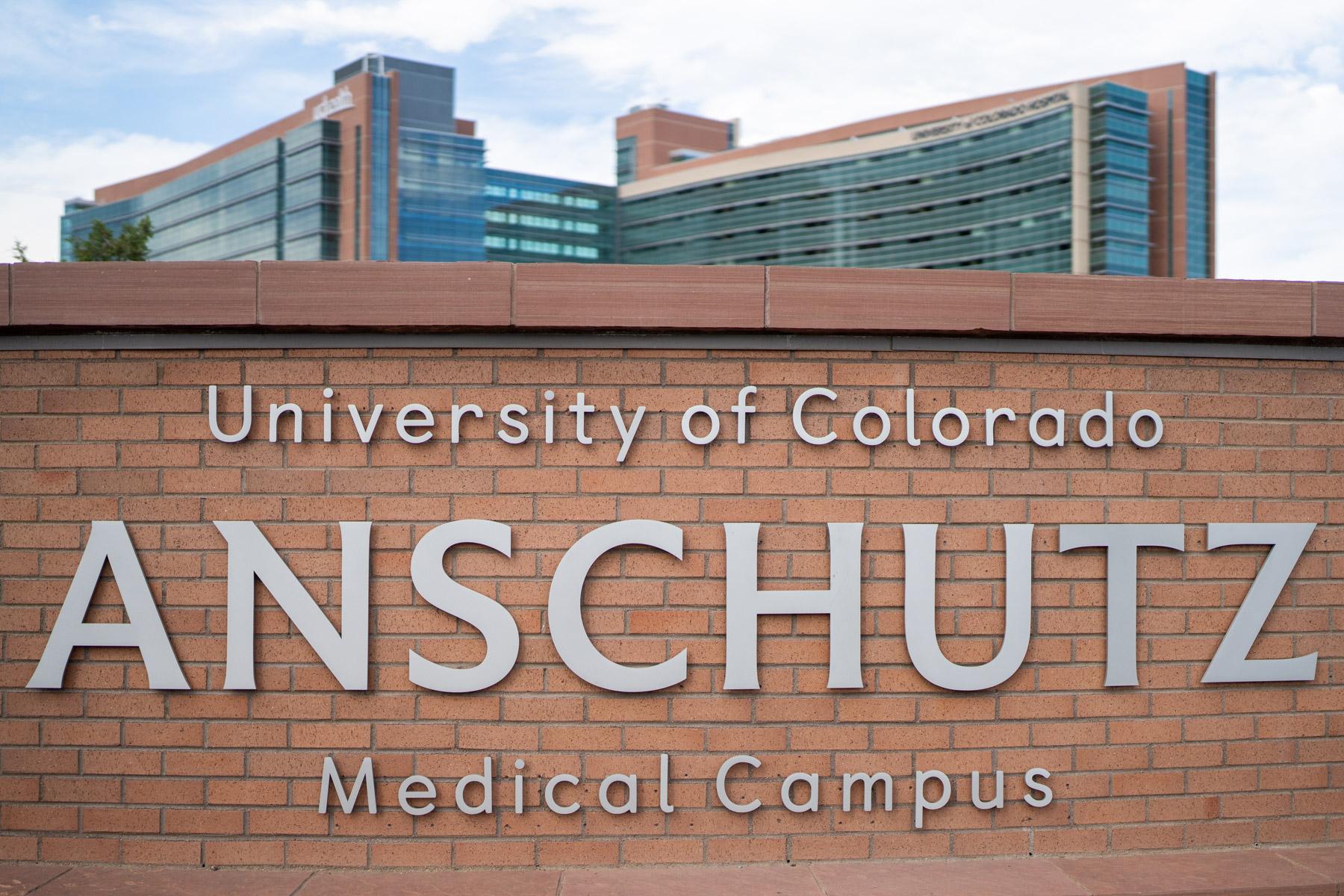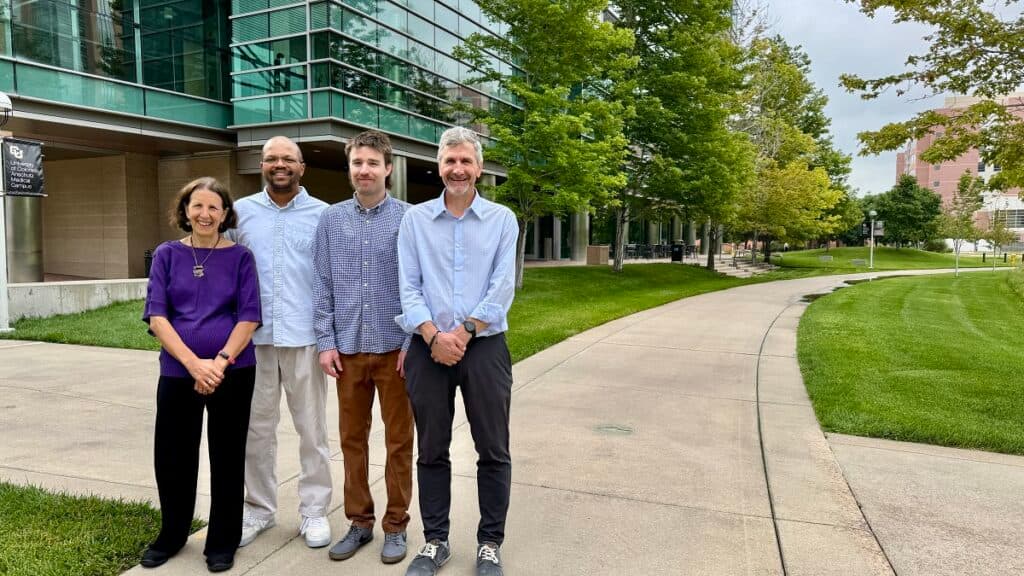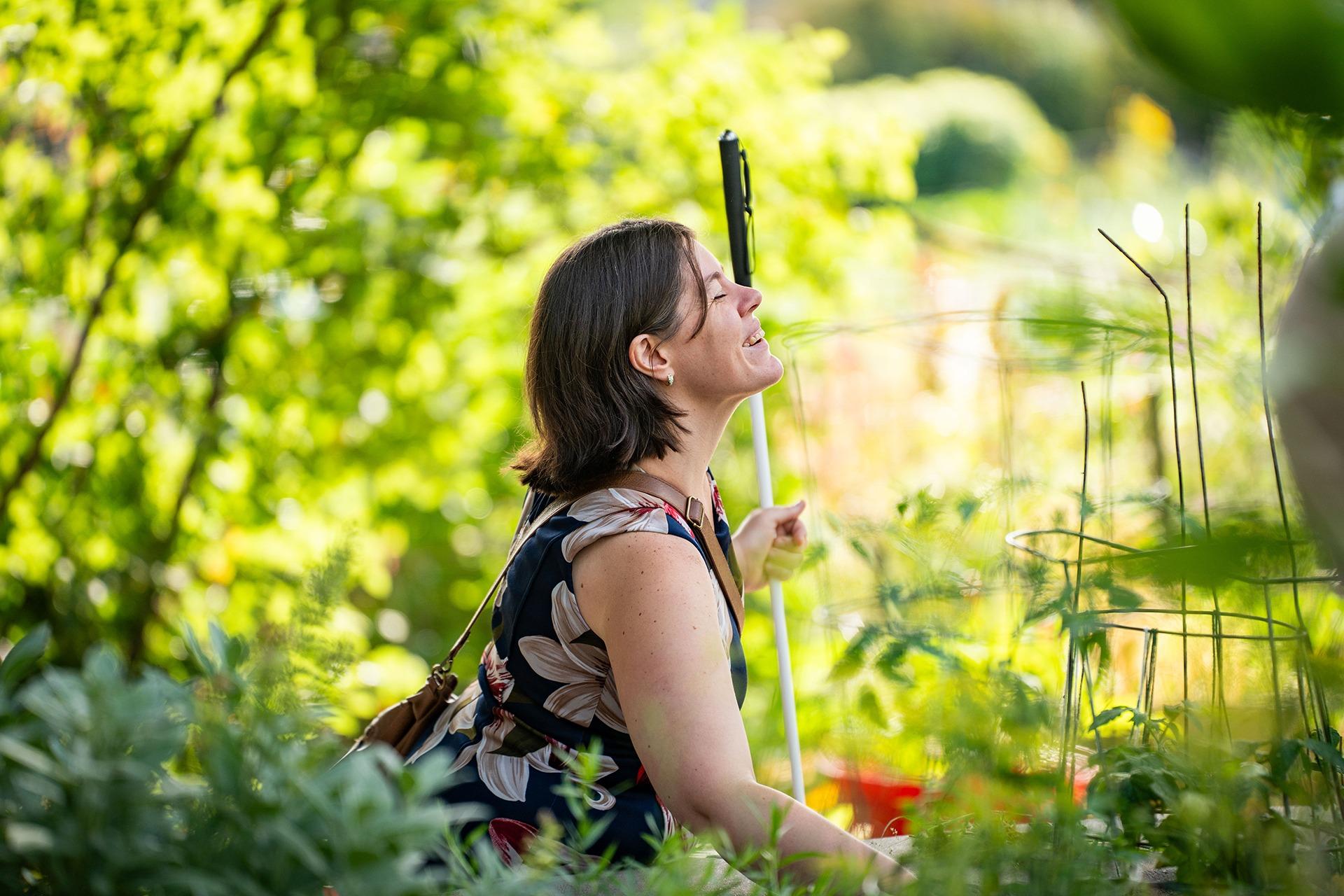
Updated at 4:09 p.m. on Thursday, July 31, 2025.
Researchers at the University of Colorado Anschutz Medical Campus have found that respiratory viruses can wake up dormant cancer cells in the lungs.
They exposed mice to COVID-19 or the flu. In both cases, the respiratory infections triggered dormant cancer cells to wake up, setting the stage for new tumors.
“Dormant cancer cells are like the embers left in an abandoned campfire, and respiratory viruses are like a strong wind that reignites the flames,” said senior author James DeGregori, deputy director of the Colorado Cancer Center.
“We showed that for both influenza virus, which causes flu, and for SARS-CoV-2, which causes COVID-19, in both cases we got a dramatic awakening of these cancers within this model,” he told CPR in an interview.
The research in mice was bolstered by research involving a pair of human population studies which also showed a risk for people.
In the mouse study, molecular analyses revealed that the awakening of dormant cancer cells is driven by interleukin-6 (IL-6), a protein that immune cells release in response to infections or injuries, according to a press release.
The research team analyzed two large databases of human cases. They found support for their hypothesis that respiratory infections in cancer patients in remission are linked to cancer metastasis, or spread.
One of those databases was of a general population group of more than 500,000 participants. Some were diagnosed with cancer and other diseases before the coronavirus pandemic.
Researchers in the Netherlands and UK investigated whether infection with COVID-19 increased the risk of cancer-related mortality among participants who had the disease, focusing on cancer survivors who had been diagnosed at least five years before the pandemic, ensuring they were likely in remission.
Among them, 487 individuals tested positive for COVID-19 and these were compared to 4,350 matched controls who tested negative.
After excluding those cancer patients who died from COVID-19, the researchers found that “cancer patients who tested positive for COVID-19 faced an almost doubling of risk of dying from cancer compared to those patients with cancer who had tested negative,” according to the release.
The change was most pronounced in the first year after infection. Researchers found the rapid progression to cancer mirrored what they’d seen in the mouse study.
A second study examined data from the U.S. Flatiron Health database. They compared the incidence of cancer spreading to the lung among COVID-19 negative patients and COVID-19-positive patients (36,216 and 532 patients respectively).
During a follow-up period of about 4 years, those patients who came down with COVID-19 were almost 50 percent more likely to experience metastatic progression to the lungs compared with patients with breast cancer without a diagnosis of COVID-19.
Researchers say their findings suggest cancer survivors may be at increased risk of a relapse after common respiratory viral infections. They noted their study focused on the period before COVID-19 vaccines were available.
The peer-reviewed findings are published in the journal Nature. The team at CU Anschutz collaborated with researchers at Montefiore Einstein Comprehensive Cancer Center in New York, and Utrecht University in the Netherlands.

DeGregori likened the cancer to waiting sleeper cells, ready to be triggered.
“These infections can have long-term consequences, but I think what it shows is that they can have consequences that go well beyond the week or two or so that you're infected,” DeGregori said.
He says based on the findings, people with a history of cancer may benefit from taking precautions against respiratory viruses, like vaccination, when available.
What follows are excerpts from an interview by CPR News health reporter John Daley with James DeGregori. It’s been edited for clarity and brevity.
John Daley: Tell me about your research. This sounds like it may be a significant finding that you've got here.
James DeGregori: Basically this started during the pandemic and we were already interested in understanding the process of cancer dormancy. We had a collaboration with some colleagues at Albert Einstein College of Medicine looking at the role of aging and the awakening of dormant cancer cells. So just to back up, if you have a cancer, particularly for certain cancers like breast cancers, you can be going into remission where the cancer is undetectable and at that point you may be cured, but there's also some risk of relapse with every subsequent year. And for breast cancers, this can even be two decades after your initial cancer. And that relapse is pretty much always metastatic, meaning (involving) distant organs. And what basically is happening is we have these dormant cancer cells that become embedded in these distant cancers embedded very early during the evolution of this cancer. And they just sit there kind of like sleeper cells waiting and we still lack a lot of information on what wakes them up and makes them basically progress to metastatic disease.
Daley: So just to summarize, in layman's terms here, respiratory viruses can wake up breast cancer cells, and this is the first time researchers have seen direct evidence that a respiratory infection can awaken dormant cells, at least in breast cancer.
DeGregori: Given that there had been previous studies that have shown a role for inflammation in this awakening, we figured if there's anything inflammatory, it's going to be a respiratory virus infection. So together with colleagues here, we tested this in this mouse model that we got from the Albert Einstein College of Medicine. And as a collaborative group, we asked the question, does a respiratory virus infection induce this awakening? And we showed that for both influenza virus, which causes flu, and for SARS-CoV-2, which of course is COVID-19, in both cases we got a dramatic awakening of these cancers within this model. And then we worked out a detailed mechanism for understanding how that awakening happens.
The model we used was a model of breast cancer. Some of the epidemiology was not restricted to breast cancer, so we don't think this result is entirely restricted to breast cancer. But to really nail down which cancers this is relevant for will require more study.
Daley: You first did a study in mice and then also looked at data involving humans, and you were able to see the changes in both those studies or both those parts of the study?
DeGregori: This is the first demonstration for any cancer. And I think a power of the study was that we didn't just do it with experimental models, but that we teamed up with epidemiologists both here in Colorado, but also in the Netherlands and in the UK. And actually they obtained epidemiological evidence showing that people who were cancer survivors who subsequently went on to experience a COVID-19 infection, that they basically had an increased risk of progression of their cancer either in one study to metastatic disease in the lungs. And in the other study, the outcome that we looked at was just death from cancer and the effects were quite dramatic. I mean a big increase in risk. And that I think was a real wake up to us that this actually has quite high relevance for the population.
Daley: The studies complimented one another?
DeGregori: Exactly. So either one on its own would not have nearly been as strong, but I think it's that the two really compliment each other. If you only have the human studies, it's correlative and it's harder to draw a cause and effect relationship. But if you have the mouse studies as well, which show basically cause and effect and allow us to delve into the mechanism which can then allow one to hopefully at some point circumvent these effects, that the two really complimented each other. And this is why this was such a team effort, because no one investigator is going to have the expertise in such diverse areas.
Daley: And inflammation is key to all this?
DeGregori: Previous studies for dormant cancer cells had shown a role, for example, of cigarette smoking and inflammation.But that actually was one of the inspirations for our study in that it had clearly shown a role for inflammation in this awakening. And then other research had looked at sort of the mechanisms of awakening in response to aging and the roles of different cell types. So there are certainly previous studies that had tried to understand the pathways that mediate dormant cancer cell awakening, but ours was really the first one to look at something so common like a respiratory virus infection. Although I should temper that a bit because obviously smoking's quite common. So I don't want to downplay the importance of that study either.
Daley: And in this case it’s the respiratory virus that’s critical?
DeGregori: It was one of those cases where we almost hope that we were wrong in the sense that given the sheer number of people that have been infected that have gotten COVID-19 on top of the fact that influenza comes back every single year and it affects millions, that being wrong would've been actually nice in the sense that this wasn't an increased risk for people to get infected. But that combined with the epidemiological data really says that this is a risk and knowledge is power. So it's better to know than to not know, even if the result is kind of scary. And I should mention that this isn't something that everyone who's a cancer survivor should panic at, but it is again, something that they should know with all the sort of appropriate caveats for a single study. But they should know this in terms of decision making moving forward,
Daley: Is there a link that can be seen in cancer deaths?
DeGregori: Actually overall just tracking total numbers of cancer deaths, there's not a clear signal. Of course, it could be that the number of people at risk and that had gotten COVID was small enough that it's not going to affect the overall rate. But there's a lot of other complicating factors in the sense that, for example, a lot of people weren't going to the doctor during COVID and so forth. And so that's why we really limited the study to people that had a previous cancer. And that subsequently developed the infection. And the UK Biobank study was particularly valuable in that it allowed us to actually not just look at people who developed COVID by being test positive, but we restricted the control group to test negative. So they got the test and it was shown to be negative, and that allowed us to basically have a stronger sense of the risk that was imparted by that COVID infection. In the US database, it was a little more difficult because we only have the people that had a diagnosis of COVID-19. All the negatives are only negative in the sense that they didn't have a recorded infection that was in their hospital records, and that's not the same thing. Some of those people may have been affected and that if anything reduced the effect size. In other words, it made the effect less dramatic, not more.
Daley: What are the implications of what you've learned?
DeGregori: I think there's multiple implications. The first sort of big picture is that we need to be concerned with respiratory viruses beyond just the acute infection. Of course, we've already learned that with COVID-19, and there's a whole study of long COVID, right? And that these infections can have long-term consequences, but I think what it shows is that they can have consequences that go well beyond the week or two or so that you're infected, and these consequences may vary depending on the person, whether they've experienced cancer before and so forth. So I think it tells us we need a lot more study and that we need to continue to be very concerned about that next big COVID-19 type infection, whether it's another coronavirus or some other virus. But I think respiratory viruses are here to stay, at least for now. And so we need to understand how to deal with them. I think the other thing it tells us is that primary prevention is probably the wisest course right now. So vaccination, avoiding infection and so forth. And obviously each person has to choose their own level of risk. I'm not suggesting that someone who had previously had a cancer become a hermit. I think everyone's got to choose their level of risk. But I think it does indicate that there is an added risk if you're a cancer survivor to getting a respiratory virus infection, whether it's the flu or a COVID-like infection.
Daley: Would survivors of other types of cancer also want to be sure to be getting vaccinated?
DeGregori: I can't give medical advice myself, I am a PhD, but our experimental studies with the mouse model were restricted to a breast cancer model. That said the UK Biobank was not restricted, it included individuals with all cancers. We didn't have the numbers to break it down by cancer type, but we can say that it wasn't restricted to patients with breast cancer. It did spread across other cancers. So in all likelihood, the answer is yes, it probably does extend to other cancers, but we really are going to need to get experimental support for that, which is something we're planning in the upcoming years.
Daley: What's the next step on the research front, either that you and your team are looking at or that others elsewhere around the globe are exploring?
DeGregori: We have a grant where we're specifically going to delve even further into the mechanism. So we want to know not just what causes the awakening, which we know requires this factor called IL six, but we also want to understand the mechanism whereby the immune system protects these growing cancer cells, because that was one of the surprises is that the immune system, instead of helping to eliminate the cancer, actually became their guardians and prevented their elimination. So we want to work out the details of those pathways so that we could potentially intervene as it is now, I don't think we could make any sort of recommendation. In fact, I know that we can't make any sort of recommendation saying that if you're a cancer survivor and you get infected, you should do X, Y, or Z. We don't have that sort of information, and that's going to require further studies, further models, and eventually clinical trials. But this work sets the stage for such studies, and I should mention that our colleagues in the Netherlands, they're going to be doing more epidemiological studies to ask the very questions that you are asking, does this apply to other cancers? What about other sites of metastasis and so forth, because there's a lot more questions to be asked.
Daley: We know there've been deep cuts to research from the federal government. Is that impacting your work at CU Anschutz and federal funding helped with your research? And if so, how?
DeGregori: Of course it is impacting our work and it's going to impact everyone's work. I would say the greatest impact is going to be on junior scientists who are just getting started, because it's going to be very difficult to get that funding to get going. And I think a lot are going to leave the field. Right now they're proposing a 40 percent or something on that order cut to the NIH budget, and that includes the National Cancer Institute. If that moves forward, the funding for grants will go to about a third of the current funding, and already only about one in 10 grants would end up getting supported. And that already meant that keeping a lab supported was an arduous process and very risky and very difficult. Basically, investigators are writing grants all the time. If the overall budget to the NIH drops by 40 percent or more, which is what they're now proposing, it's going to be just impossible to run a lab. It's going to mean that the scientific supremacy of this country is going to end. I don't see any other way around it. It's going to have a dramatic effect on science in this country.
Daley: And you had federal money for your research?
DeGregori: Yes, we did receive some federal funding. This research was partially supported by a VA merit award. We also received quite a bit of philanthropic funding because since it was new and we didn't really want to wait for the long process of getting a new NIH grant. We got support, for example, from the Cancer League of Colorado, some other philanthropic funds that come to my lab. And our collaboratives also were sort of doing these studies with coins found in the seat cushions. So our group just got an R one, which is a large grant from the National Cancer Institute, but that only started a few months ago. So that funded the very tail end of these studies. So the vast majority of the studies were not funded by grants that we had actually specifically proposed this research for.
Daley: The kind of research that you've been pursuing, in what seems like a breakthrough here, is the kind of thing that we might lose if the federal funding goes away entirely or decreases dramatically?
DeGregori: Absolutely. I mean we just got the funding for this. So in some ways, this research should have some funds for the next four and a half years, but I think there's many other projects that have not been funded where people are going to be applying for the funding, including from our lab and our collaborators labs, that it's just going to be nearly impossible to get the funds to do that. Investment and research has been one of the things that has made America great since after World War II. That investment was sort of a pact with universities, for one thing has led to unbelievable discoveries and even beyond the incredible health benefits of this research has been the economic benefits. It's paid off several fold. It's rare that any investment pays off several fold, but it's been one of the smartest things this country has done, and it's set us apart and turned us into a world leader in science and technology. And so it'd be a real shame to see that go by the wayside.
Editor's note: This story has been updated to clarify the name of the medical school involved in the study. It is Albert Einstein College of Medicine.









